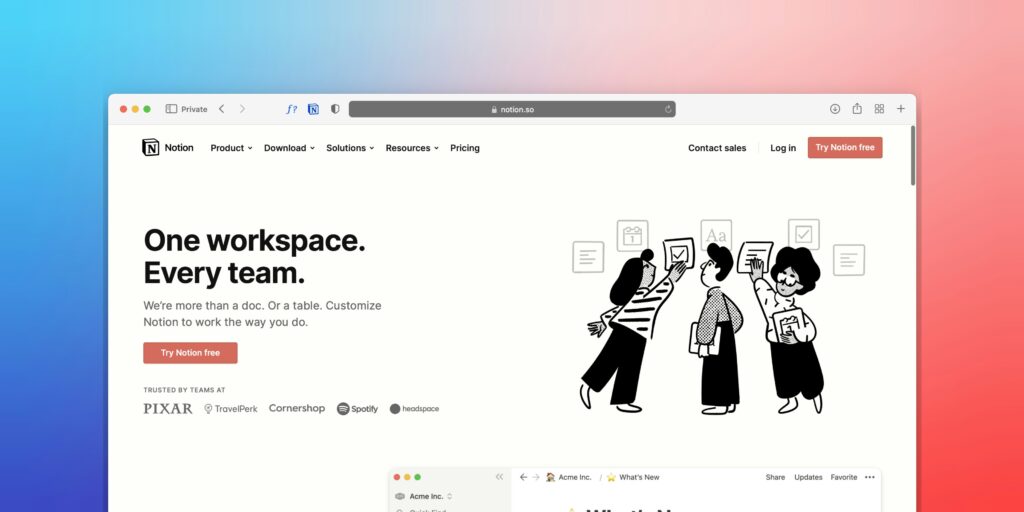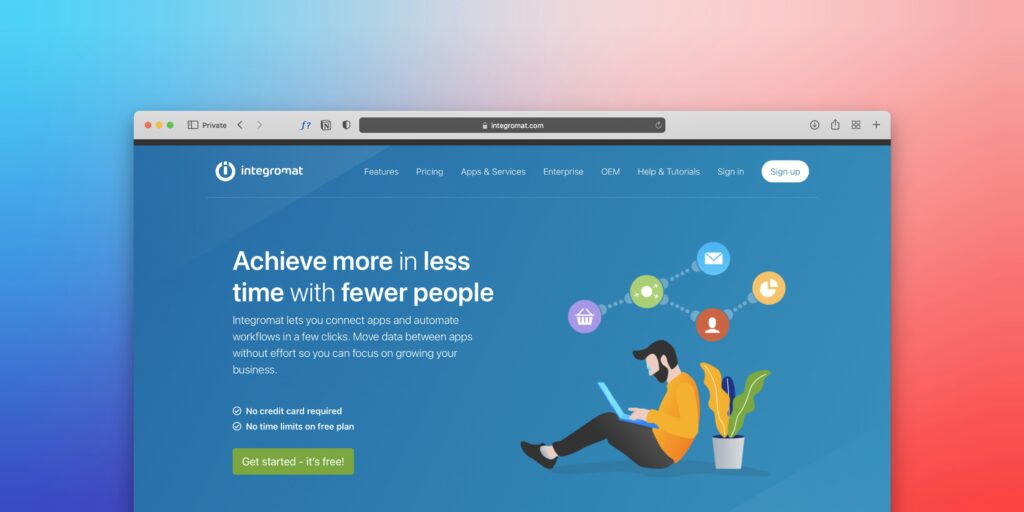Artificial Intelligence (AI) is evolving at lightning speed. In just a few years, tools like ChatGPT, Midjourney, and countless AI agents have transformed industries that once felt untouchable. So it’s no surprise that many are now asking a pressing question: Will AI kill SaaS?
Will AI kill SaaS?
The answer isn’t simple. Some SaaS products are indeed at risk. But others are more relevant than ever. In this post, we’ll dive deep into which SaaS models are vulnerable, which are “AI-proof,” and how founders can build sustainable, future-proof businesses.
The Existential Question: What Is SaaS Really For?
Before we can evaluate if AI will replace SaaS, we have to understand why SaaS exists in the first place.
SaaS (Software as a Service) was never just about building cool software. Its purpose is clear: to deliver value to users by solving problems.
These problems usually fall into one or more of the following categories. First, SaaS helps users save time or money by automating time-consuming manual tasks and streamlining repetitive workflows. Second, it improves productivity and workflow efficiency by enabling teams to collaborate, share, and execute tasks faster and more effectively. Third, SaaS can provide critical information, insights, or analytics that allow users to make smarter, data-driven decisions. Additionally, SaaS platforms help automate manual or repetitive tasks, minimizing errors and saving valuable human effort. Lastly, SaaS enables better decision-making through advanced analytics, AI insights, or machine learning recommendations.
In other words, SaaS is a value-delivery vehicle. Whether B2C (business to consumer) or B2B (business to business), successful SaaS products exist because they solve real problems.
So the question isn’t whether AI will kill SaaS in general. It’s this:
Will AI replace the specific value a SaaS product delivers?
If yes, that SaaS is likely to fade. If not—or if the SaaS evolves to integrate AI—it could become more valuable than ever.

Yes, AI Will Kill Some SaaS Products (Here’s Why)
Let’s be honest: some SaaS tools are just glorified wrappers for simple workflows. Think of SaaS apps that summarize text, generate captions or headlines, send mass emails with templates, perform simple math or logic automation, or offer basic keyword suggestions and content scoring. These types of SaaS tools once thrived because they simplified something tedious. But now, a user can do all of those things in seconds with ChatGPT or other LLMs.
When the core value of your SaaS can be replaced by a single AI prompt, your product is at risk.
We’re already seeing churn in categories such as social media schedulers, writing assistants, basic survey and form builders, and simple email tools. If these platforms don’t adapt and integrate AI deeply into their workflows, they will be replaced by more flexible, cost-effective AI tools.
No, AI Won’t Kill All SaaS (Here’s What Survives)
While AI can do many things, it still can’t do everything. Especially when it comes to:
1. Specialized Data & Infrastructure SaaS
AI is powerful, but it still needs data and systems to operate on. Platforms that offer large, well-maintained databases like Geo IP, medical codes, or financial benchmarks provide foundational resources AI cannot replicate instantly. Secure cloud infrastructure services and APIs for mission-critical functions, such as those offered by Stripe or Twilio, are still incredibly valuable. In fact, AI doesn’t replace them; it depends on them.
2. Heavily Regulated or Secure Domains
SaaS platforms that manage compliance, security, or industry regulations are harder to replace with a generic AI agent. Legal SaaS platforms that handle document automation, compliance tracking, and case management continue to be indispensable. In healthcare, platforms that comply with HIPAA standards must maintain strict security protocols and patient data handling practices. Similarly, SaaS platforms providing financial reporting must adhere to evolving regulations and deliver audit-ready reports. These products require trust, security, and ongoing certification—things AI can’t instantly offer.
3. Deeply Integrated B2B Workflows
Enterprise SaaS that integrates across departments and tools are very difficult to displace. These platforms have deep hooks into internal business systems, serve multiple roles across sales, finance, HR, and operations, and include complex features such as user roles, permissions, compliance tracking, and role-based analytics. AI may enhance these tools by improving specific features or processes, but it won’t easily replace them in their entirety.
4. SaaS with Strong Network Effects
Products like Slack, Notion, or Figma thrive because everyone is already using them. Their utility comes not just from what they do, but from the ecosystem and collaboration they enable. Teams adopt them because their clients, vendors, or partners already use them, creating strong network effects. AI would have to rebuild that entire network to compete, making these platforms more resilient.

What Will Happen Instead: AI-Enhanced SaaS
The future isn’t SaaS vs. AI. It’s SaaS + AI.
The strongest platforms will embed AI at the core of their value delivery. That means smarter automation that adapts in real time to user behavior and needs. It also means personalized user experiences, from onboarding to customer support, that feel truly one-on-one. Predictive analytics powered by machine learning will empower users to make better decisions before issues even arise. Natural language interfaces will simplify interactions, making tools more accessible and user-friendly. Lastly, SaaS tools will offer instant support, onboarding, and in-app help that feels like a personal assistant, not a static knowledge base.
Real-World Examples of AI-Enhanced SaaS
Many modern SaaS platforms are already leading the way with AI integration:
Website Builders (e.g., Wix, Framer, Durable): These tools allow users to generate entire landing pages using simple prompts. Just describe your business, and AI handles layout, copywriting, and design.
Document & Copywriting Tools (e.g., Notion AI, Grammarly, Jasper AI): These platforms now assist with summarization, idea generation, tone adjustments, and personalized content creation, making writing easier and faster.
E-commerce Platforms (e.g., Shopify Magic): Shopify’s AI generates product descriptions from keywords, helping store owners create optimized listings in seconds.
CRM & Sales Platforms (e.g., Salesforce Einstein, HubSpot): AI now handles predictive lead scoring, sales forecasting, and email drafting, giving reps more time to close deals.
HR & Recruitment SaaS (e.g., Lever, Workable): AI screens candidates, matches resumes, and writes job descriptions, speeding up hiring processes.
Design Tools (e.g., Canva, Figma): Users can auto-generate designs or presentations with smart layout suggestions and creative templates, guided by AI.
Data & Analytics Platforms (e.g., Tableau, Polymer Search AI): These tools allow users to ask questions in natural language and receive instant visualizations or dashboard insights, reducing reliance on analysts.
The takeaway? The best SaaS platforms use AI to remove friction, deliver faster results, and enhance personalization.
The Hidden Risk: Building the Wrong SaaS Product
Here’s what too many new founders miss:
You can build fast, clean, and beautifully—and still fail… if you’re solving a low-value problem AI already does better.
That’s why at SaaSVolt, we don’t just build software. We help validate the market, the pain, and the profitability of your idea before we write a single line of code.
Our clients don’t just launch faster. They launch smarter. Our service includes an in-depth idea validation phase, where we assess your concept’s viability in an AI-driven market. We examine whether your SaaS idea addresses a defensible pain point, provides scalable value, and has long-term potential. This ensures that you’re not just building a SaaS product, but building one with a future.
What Makes a SaaS Idea AI-Proof?
If you’re brainstorming your next SaaS, filter your ideas through this checklist:
First, does it provide access to a valuable database or dataset? Platforms that aggregate and maintain high-value, proprietary data like weather history, IP databases, or business credit scores create defensible advantages AI can’t replicate easily.
Second, does it handle secure, regulated, or industry-specific workflows? SaaS products that manage compliance, tax calculations, HR regulations, or medical data operate in fields that require trust and longevity.
Third, does it solve a complex workflow that requires integration, roles, and context? Think supply chain management platforms, internal ops tools, or ERPs that touch every part of a business. These can’t be replaced by a simple chatbot.
Fourth, does it act as a platform others build on top of? SaaS tools that offer robust APIs or plugin ecosystems, like Shopify or Zapier, gain strength from their extensibility.
Fifth, will it become more valuable with embedded AI, rather than obsolete? AI-powered CRMs, dynamic dashboards, or forecasting tools are all SaaS platforms that benefit from AI rather than get replaced by it.
If you can say yes to at least two of the above, your SaaS idea is likely future-proof.
Final Answer: Will AI Kill SaaS?
No, but it will kill lazy SaaS.
The era of launching thin wrappers and calling it a startup is over. If your product doesn’t deliver real, defensible value, AI will replace it.
But if you’re solving meaningful problems, working with rich data, or embedding AI to enhance your product—your SaaS can thrive in the AI era.
At SaaSVolt, we specialize in building validated, AI-aware, and scalable SaaS platforms for digital founders. Our proven process ensures that your product idea is future-proof from day one, with expert-guided validation and a build strategy tailored to the real-world demands of the market.
Want to build something that lasts? Book a free idea validation call and let’s explore your SaaS future.


